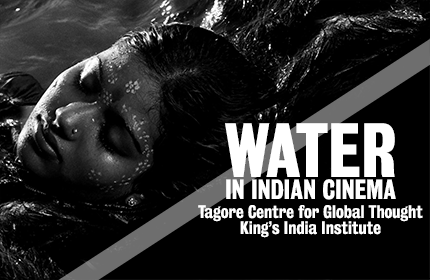This term, the Tagore Centre for Global Thought at the King’s India Institute is hosting a film series exploring water in Indian cinema. This season of award-winning classic and contemporary films explores rivers, lakes and oceans as sites of everyday life, work, romance, worship and death. Iconic locations – the Indian Ocean; Himalayan lakes; the mythic Ganges, Brahmaputra and Titas rivers – teem with activity, rich with human experience. Groups and individuals struggle for housing and labour rights, sexual freedom and self-realisation. The films blend fiction and documentary: Bollywood songs layer the video diaries of sailors working in the Gulf, while actuality footage is woven into the auteur films of Jean Renoir and Ritwik Ghatak. From masterpieces of world cinema to rarely-seen ethnographic, state-produced and activist documentaries, these films portray communities dwelling in symbiosis and in conflict with nature. The series is curated by Tanya Singh.
Up next is The River (1951, 99mins, English & Hindi, dir. Jean Renoir) on the 14th of February. Renoir’s first colour feature, a languid romance shot around the Ganges in Bengal. Set during the last days of the Raj and based on Rumer Godden’s semi-autobiographical novel, the film recounts episodes in the lives of a colonial English family and their Anglo-Indian neighbour Melanie (Radha Burnier). Criticized for purported Orientalism, the film’s construction of a pan-Indian cultural composite can lend itself to alternative readings. The implied romance between mixed-race Melanie and a white American visitor, Captain John, challenged prevailing racial taboos, while Burnier’s remarkable Bharatanatyam dance, choreographed by KN Dhandayudhapani Pillai, is electrifying and vital in the context of the colonial ban on temple dancing. The film is notable also for its extraordinary actuality footage of fishermen at work, with extended sequences of labouring bodies that are blended but not subsumed into the fictional narrative. Sustaining a tension between myth and documentary, action and contemplation, the film significantly impacted the development of neorealism in Indian cinema – most notably for Satyajit Ray, Renoir’s uncredited assistant. The film will be introduced by Prof Ginette Vincendeau.
For more details, please visit the Series Website at http://www.kcl.ac.uk/sspp/departments/kii/Tagore-Centre/Film-Series/2017.aspx.
